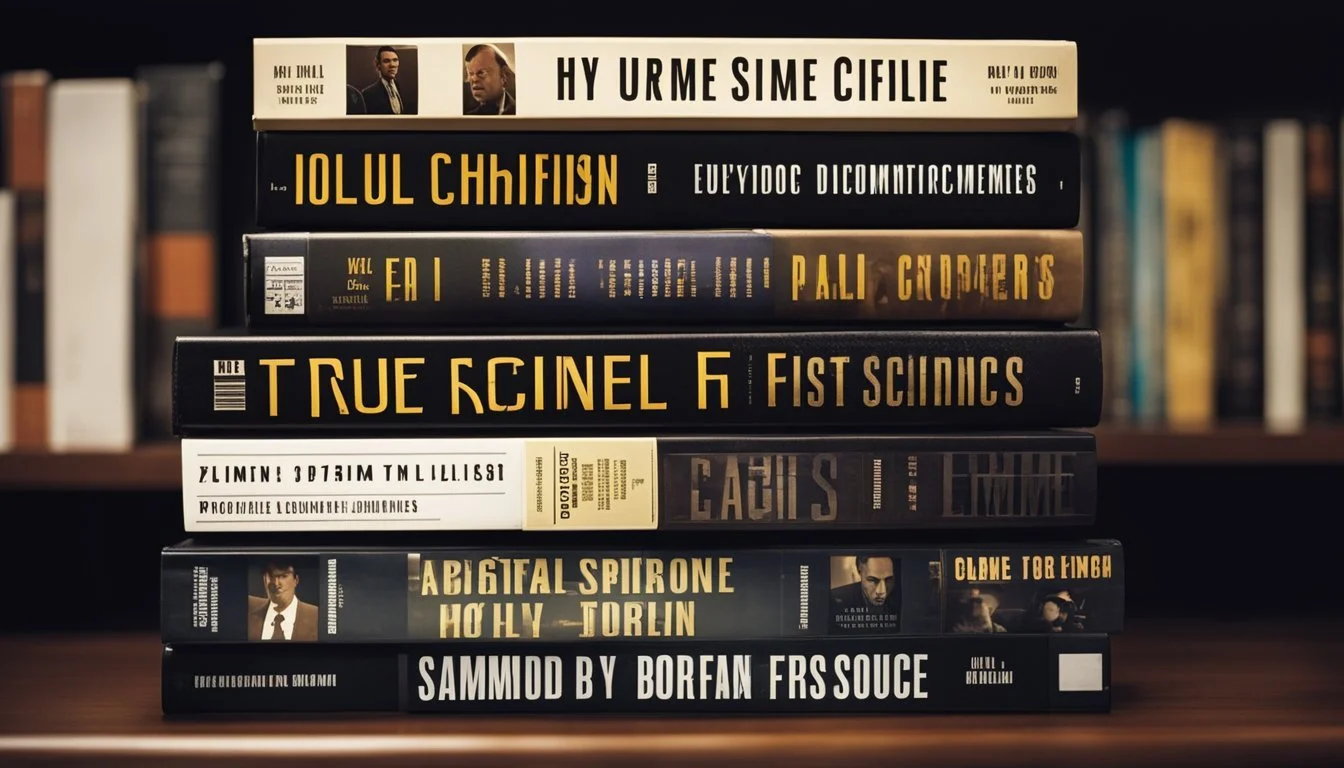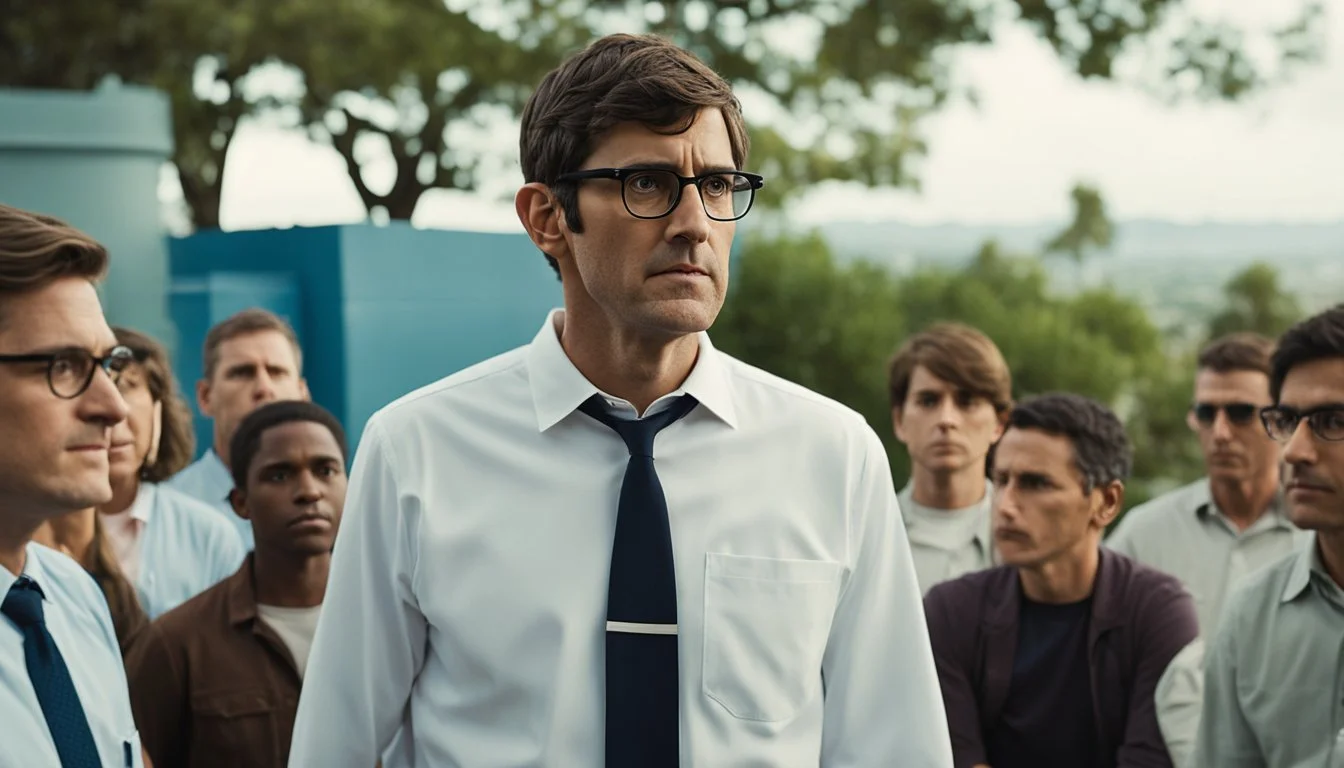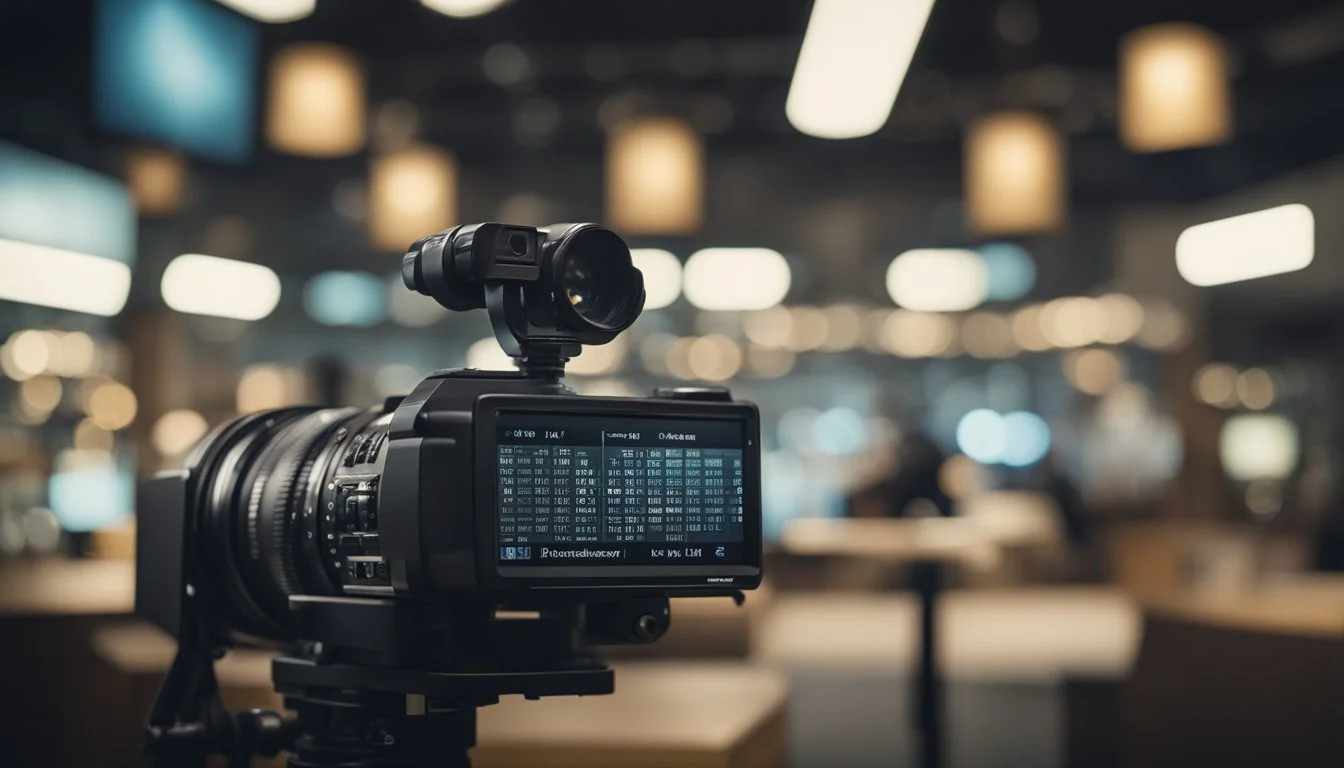6 True Crime Documentaries About Christian Science
A Deep Dive into Faith and Mystery
Christian Science, a religious movement founded by Mary Baker Eddy in the late 19th century, has intrigued many due to its unique beliefs, including faith in spiritual healing over conventional medicine. This intrigue has led to a number of true crime documentaries that explore various facets and controversies within the movement.
For viewers curious about the intersection of faith, crime, and human experience, true crime documentaries about Christian Science offer compelling insights. These films delve into real-life events and personal stories, shedding light on the complex and sometimes hidden aspects of this enigmatic faith. They provide a window into how deeply-held beliefs can impact individuals and communities in profound and sometimes tragic ways.
1) ‘Going Clear: Scientology and the Prison of Belief’ by Alex Gibney (2015)
Alex Gibney's documentary, released in 2015, dives into the inner workings of the Church of Scientology. The film sheds light on the controversial practices and beliefs of the organization.
Featuring interviews with former Scientologists, it provides first-hand accounts of their experiences. The film explores the church's origins, its leader L. Ron Hubbard, and its influence on members.
Gibney meticulously uncovers the mechanisms that draw people in and the reasons some decide to leave. It is based on Lawrence Wright's book "Going Clear: Scientology, Hollywood, and the Prison of Belief."
This documentary offers a critical look at one of the most secretive and powerful religious organizations in the world. To learn more about the documentary, visit IMDb.
2) ‘Holy Hell’ by Will Allen (2016)
"Holy Hell," directed by Will Allen, delves into his experiences from two decades within the Buddhafield cult.
The documentary offers a rare inside look, utilizing footage Allen captured during his time as the group’s videographer.
Led by a charismatic leader named Michel, the group initially seemed spiritual and supportive, attracting many young idealists in the 1980s.
Over the years, however, darker truths emerged.
Members alleged various forms of abuse by Michel, shattering the idyllic facade.
This film serves as a striking account of how the promises of enlightenment and community can mask underlying manipulation and control.
For further reading, check more details on its Wikipedia entry.
3) ‘Leah Remini: Scientology and the Aftermath’ (2016)
"Leah Remini: Scientology and the Aftermath" explores the experiences of former members of the Church of Scientology. Hosted by actress and ex-Scientologist Leah Remini, the series highlights personal accounts and the impact of the Church's alleged harmful practices.
Leah Remini, along with former Scientology executives and members, conducts interviews with individuals and families who have left the Church.
This documentary series aired from 2016 to 2019 and consists of three seasons. It delves into controversial topics including legal battles, intimidation, and emotional distress faced by former Scientologists.
For more information, visit the IMDb page.
4) ‘My Scientology Movie’ by Louis Theroux (2015)
Louis Theroux directs My Scientology Movie, taking an unconventional approach to investigate Scientology. This 2015 British documentary explores the controversial church by recreating incidents based on accounts from ex-members.
Theroux collaborates with director John Dower and producer Simon Chinn. Together, they bring to life stories from former Scientologists through staged scenes, featuring young actors auditioning for roles of prominent church figures.
The film investigates the church's practices and purported incidents. Theroux’s unique style adds an intriguing dimension to the documentary.
For more information, visit IMDb or Wikipedia.
5) ‘The Source Family’ by Maria Demopoulos (2012)
Directed by Maria Demopoulos and Jodi Wille, “The Source Family” explores the life and practices of Father Yod and his commune, the Source Family. Centered in Los Angeles during the early 1970s, the Source Family was known for its emphasis on natural foods, spiritual teachings, and psychedelic rock.
The documentary is rich with archival footage and personal accounts from former members, providing a vivid portrayal of the group’s unique way of life. The Source Family gained attention for their distinctive lifestyle and Father Yod's charismatic leadership.
Their time in Hollywood spotlighted the clash between their utopian ideals and conventional societal norms. Controversies arose due to Father Yod's multiple marriages and the group's communal living arrangements, which led them to relocate to Hawaii.
The film delves into the final years of the commune, documenting their struggles and ultimate disbandment. By combining historical materials with interviews, the documentary offers a comprehensive look at an experiment in alternative living that left a lasting impact on its members.
For more information, visit IMDb.
6) ‘The Vow’ by Jehane Noujaim (2020)
‘The Vow’ is a true crime documentary series directed by Jehane Noujaim and Karim Amer. This series explores the NXIVM cult and its leader, Keith Raniere.
NXIVM was initially presented as a self-improvement group, but it later came to light that its leader was involved in serious criminal activities. Raniere was convicted of sex trafficking, racketeering conspiracy, and other crimes.
The series provides insight into the emotional turmoil experienced by former members as they recount their experiences. Members initially believed they were part of a legitimate self-help organization, only to discover the dark realities behind the façade.
Through interviews and personal footage, ‘The Vow’ paints a vivid picture of manipulation and control. It also highlights the resilience of individuals who managed to leave and expose the cult.
Noujaim and Amer's direction is both careful and compelling, ensuring the viewers grasp the severity of the situation without sensationalizing the victims' pain. It’s a critical examination of the power dynamics within NXIVM.
For more information on 'The Vow', visit Wikipedia.
Impact of True Crime Documentaries on Christian Science
True crime documentaries have a profound impact on societal perceptions and pose unique challenges for adherents of Christian Science.
Societal Perceptions
True crime documentaries often shape public perception by highlighting incidents that may involve controversial or criminal elements within religious communities. When it comes to Christian Science, these documentaries can influence how the public views the faith's practices and ethics.
For example, coverage of cases involving medical neglect due to the preference for prayer over medical treatment often brings scrutiny. Media representation can therefore create a public narrative that questions the safety and morality of Christian Science practices.
This portrayal might lead to misconceptions, and sometimes, generalizations about followers, potentially fostering prejudice or mistrust.
Challenges Faced by Adherents
Adherents of Christian Science face particular challenges in the wake of true crime documentaries. Negative portrayals or intense media focus can lead to social stigma, affecting their personal and communal lives.
Believers might find themselves having to defend their faith or explain their practices more frequently. In some cases, they may face legal challenges or increased scrutiny from authorities over their religious choices, especially in the domain of healthcare.
Additionally, younger adherents could encounter peer pressure or bullying, complicating the practice and preservation of their faith traditions. Thus, these documentaries can significantly influence both external perceptions and internal experiences of the Christian Science community.
Ethical Considerations in Depicting Christian Science
When creating true crime documentaries involving Christian Science, it is crucial to balance respect for beliefs with the need for accuracy and fair representation. Ensuring a thoughtful and sensitive approach can enhance understanding and avoid potential misrepresentation.
Respect for Beliefs
Documentaries must respect Christian Science adherents' beliefs and practices. Filmmakers should strive to understand their religious context, avoiding sensationalism or mischaracterization of their faith. Respectful portrayal includes careful consideration of terminology and an effort to convey beliefs accurately.
Interviewing practitioners respectfully and avoiding judgment in narration ensures that the audience receives an authentic view. Attention to the community's voice helps maintain integrity and respects diversity in religious thought.
Accuracy and Fair Representation
Accurate representation is vital in depicting events involving Christian Science. Filmmakers should diligently verify facts and present information transparently. Misleading or incomplete portrayals can lead to public misconceptions.
Using verified sources and consulting experts on Christian Science enhances the documentary's credibility. Balanced storytelling benefits the audience by providing a nuanced understanding, showing both the context of the crime and the religious perspectives involved. Accurate representation builds trust, ensuring the documentary is informative and respectful.









